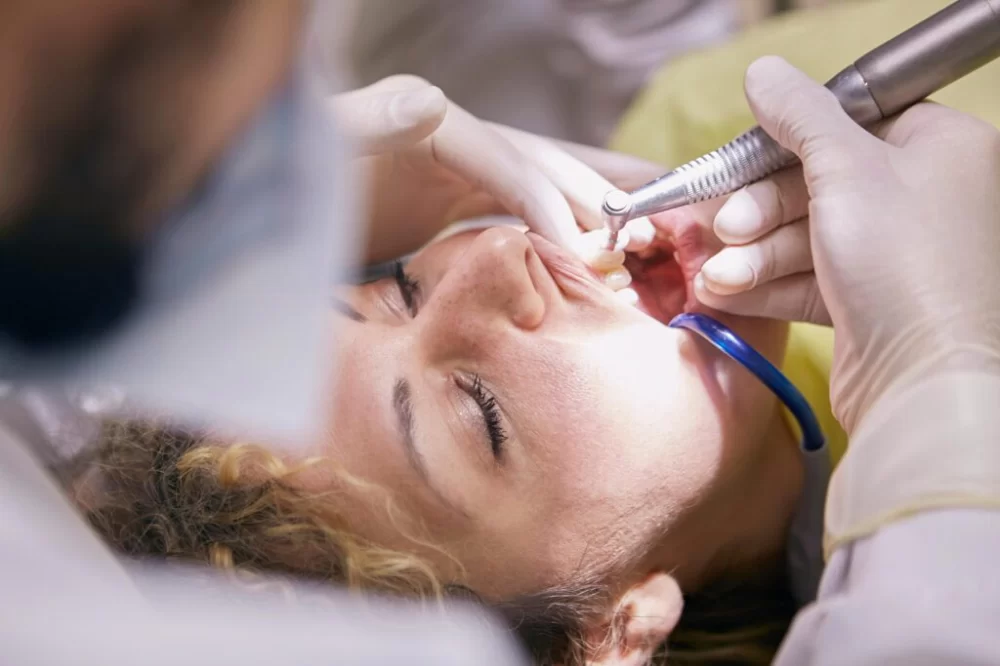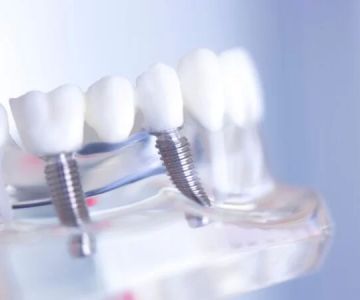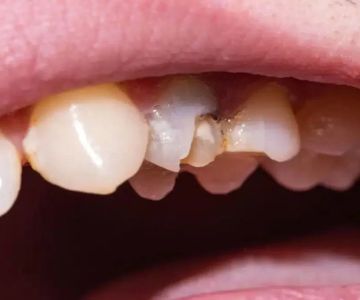
What GCSEs Do You Need to Be a Dentist? A Step-by-Step Guide
Becoming a dentist is a career that requires years of education and dedication, and it all starts with the right foundation. As someone who has explored different career paths and has always been fascinated by the medical field, I found myself asking the same question when I first considered dentistry as a profession: "What GCSEs do I need to be a dentist?" After researching and speaking to a few dentists and career advisors, I realized that the path to dentistry involves a combination of academic subjects, practical skills, and a deep passion for helping others. In this article, I'll share the key GCSE subjects you'll need and the steps you can take to pursue a career as a dentist.
1. Core GCSEs Required for Dentistry
To embark on a dental career, your journey begins in secondary school, where your GCSE choices will set the groundwork for your future. As I learned, there are a few essential subjects that will be crucial when applying for dental school. These include:
- Biology: As one of the most important subjects for aspiring dentists, biology is essential. The human body, anatomy, and biological systems are key components of dental studies, and a strong grasp of biology will help you understand how the body functions, which is fundamental in dental procedures. When I was in school, I found biology fascinating, and it was the subject that really sparked my interest in health care.
- Chemistry: Chemistry is another crucial subject for dental students. Dentistry requires knowledge of chemical processes, especially when working with materials such as dental fillings, anesthetics, and other substances. Understanding chemical reactions is key to the success of dental treatments. In my case, chemistry gave me the ability to understand how different substances interact, which is important when studying dental materials and medications.
- Mathematics: While it may not seem directly related to dentistry at first glance, mathematics is essential for dealing with measurements, calculations, and understanding complex formulas. Whether you're determining the dosage of anesthesia or calculating the proportions for dental restorations, math plays a crucial role in dental practice. It’s one subject I really had to focus on to ensure I’d be prepared for the precise nature of dental work.
2. Additional GCSEs that Can Strengthen Your Application
While biology, chemistry, and math are the primary subjects needed to pursue dentistry, there are a few additional GCSEs that can help strengthen your application to dental school. These subjects may not be mandatory, but they will certainly help set you apart from other applicants:
- Physics: Physics is not always required for dental school, but it can be incredibly helpful. Understanding physical principles, such as light, force, and electricity, can be valuable when working with dental equipment, diagnosing certain conditions, or understanding imaging techniques like X-rays. For me, studying physics helped me understand some of the scientific principles that underlie modern dental technology.
- English: Good communication skills are essential for a dentist, and English is a key subject that can help you hone these skills. Whether it's interacting with patients, explaining procedures, or writing reports, strong verbal and written communication is a must. I always made sure to focus on my English studies because it helped me develop clear communication, which is so important when interacting with patients.
- Psychology: Dentistry is not only about technical skills, but also about understanding patients' emotions, especially when they experience fear or anxiety. Psychology is a useful GCSE subject because it helps you develop a better understanding of human behavior, which will be crucial in managing patients and building trust. It was one subject that really opened my eyes to the mental and emotional aspects of patient care.
3. The Importance of Work Experience
One thing I learned when researching the path to becoming a dentist is that work experience is just as important as your GCSEs. Gaining hands-on experience in a dental practice or clinic not only helps you understand what a dentist does on a daily basis, but it also gives you an advantage when applying to dental schools. Most dental schools require applicants to have some form of work experience to show that they have a genuine interest in the profession.
In my case, I arranged work experience in a local dental practice during my school holidays. It was an eye-opening experience where I shadowed dental professionals, observed procedures, and learned about the different aspects of patient care. This experience gave me a firsthand look at what the job entailed, and it solidified my desire to pursue a career in dentistry.
4. Post-GCSE: The Path to Dental School
Once you’ve completed your GCSEs, you’ll need to pursue further education to gain the qualifications necessary for dental school. This involves taking A-levels (or equivalent qualifications) in subjects such as biology, chemistry, and sometimes physics. A strong performance in these subjects will set you up for dental school applications. Many dental schools also require you to take an admissions test, such as the UCAT (University Clinical Aptitude Test), to assess your skills in areas such as critical thinking, problem-solving, and situational judgment.
After A-levels, you will need to apply to dental schools, which typically offer five-year degree programs in dentistry. Dental school includes both theoretical and practical training, allowing you to learn about dental sciences, patient care, and hands-on procedures. Upon graduation, you will earn a dental degree and be eligible to register with the General Dental Council (GDC) in the UK (or the equivalent in your region), allowing you to practice as a dentist.
5. Conclusion: Is Dentistry Right for You?
Becoming a dentist requires dedication, a strong academic background, and a genuine interest in healthcare. The path to dentistry begins with your GCSEs, but it doesn't stop there. You’ll need to excel in A-levels, gain work experience, and apply to a dental school that aligns with your goals. While it may take years of study and hard work, the reward of becoming a dentist is a fulfilling career where you can make a real difference in people's lives.
If you’re considering a career in dentistry, I encourage you to focus on the core subjects—biology, chemistry, and math—while also considering additional subjects like psychology and English. And don’t forget about work experience! The more you learn about the profession, the more confident you’ll be in your decision to pursue it.







 Westgate Dental Arts
Westgate Dental Arts Coventry Family Dental
Coventry Family Dental Familia Dental
Familia Dental Dr. Daniel S. Fife, DDS
Dr. Daniel S. Fife, DDS Dentistry At Suburban Square: Michael I. Wollock, DMD
Dentistry At Suburban Square: Michael I. Wollock, DMD Comfort Care Dental
Comfort Care Dental The Importance of Oral Health Education During Pregnancy for a Healthy Pregnancy
The Importance of Oral Health Education During Pregnancy for a Healthy Pregnancy Why Skipping Dental Checkups Can Lead to Bigger Oral Health Problems
Why Skipping Dental Checkups Can Lead to Bigger Oral Health Problems Best Tips for Brushing Your Teeth Properly for Healthy Gums: Essential Techniques for Oral Health
Best Tips for Brushing Your Teeth Properly for Healthy Gums: Essential Techniques for Oral Health Advantages of Porcelain Dental Restorations
Advantages of Porcelain Dental Restorations How Can Diabetes Cause Tooth and Gum Problems? Preventing and Managing Oral Health Issues
How Can Diabetes Cause Tooth and Gum Problems? Preventing and Managing Oral Health Issues Healthy Habits for Promoting Good Oral Health and Hygiene: Tips for a Healthy Smile
Healthy Habits for Promoting Good Oral Health and Hygiene: Tips for a Healthy Smile